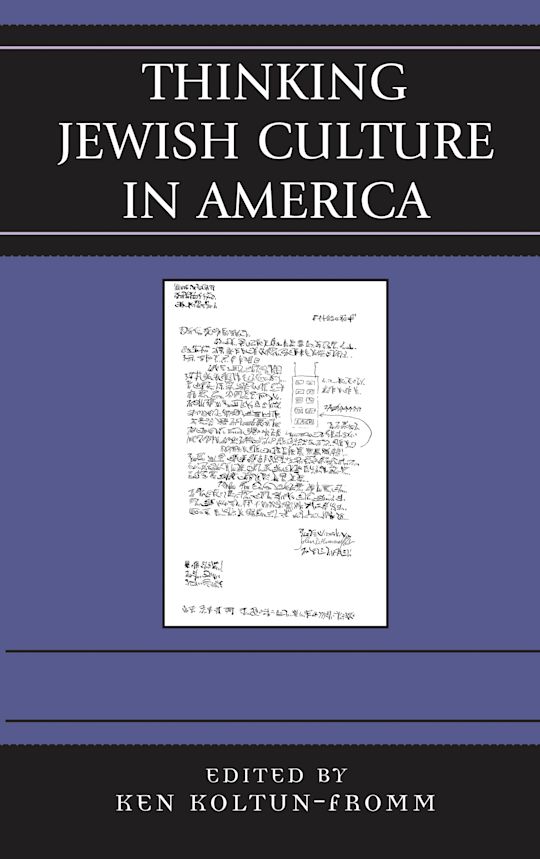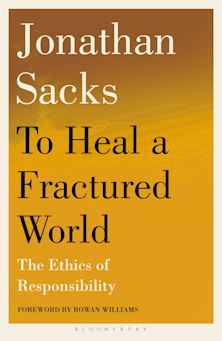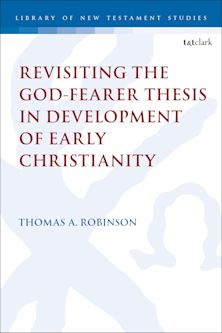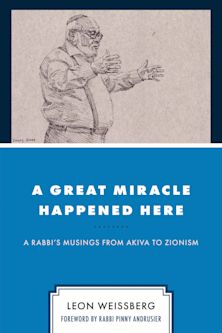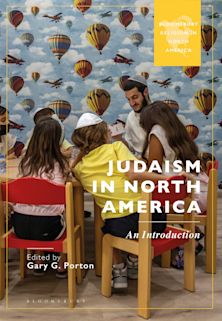Thinking Jewish Culture in America
Thinking Jewish Culture in America
Description
Thinking Jewish Culture in America argues that Jewish thought extends our awareness and deepens the complexity of American Jewish culture. This volume stretches the disciplinary boundaries of Jewish thought so that it can productively engage expanding arenas of culture by drawing Jewish thought into the orbit of cultural studies. The eleven contributors to Thinking Jewish Cultures, together with Chancellor Arnold Eisen’s postscript, position Jewish thought within the dynamics and possibilities of contemporary Jewish culture. These diverse essays in Jewish thought re-imagine cultural space as a public and sometimes contested performance of Jewish identity, and they each seek to re-enliven that space with reflective accounts of cultural meaning. How do Jews imagine themselves as embodied actors in America? Do cultural obligations limit or expand notions of the self? How should we imagine Jewish thought as a cultural performance? What notions of peoplehood might sustain a vibrant Jewish collectivity in a globalized economy? How do programs in Jewish studies work within the academy? These and other questions engage both Jewish thought and culture, opening space for theoretical works to broaden the range of cultural studies, and to deepen our understanding of Jewish cultural dynamics. Thinking Jewish Culture is a work about Jewish cultural identity reflected through literature, visual arts, philosophy, and theology. But it is more than a mere reflection of cultural patterns and choices: the argument pursued throughout Thinking Jewish Culture is that reflective sources help produce the very cultural meanings and performances they purport to analyze.
Table of Contents
Introduction by Ken Koltun-Fromm
Part I: About Culture
Chapter One: Jewish Peoplehood and the Nationalist Paradigm in American Jewish Culture
Noam Pianko
Chapter Two: Otherness and Liberal Democratic Solidarity: Buber, Kaplan, Levinas And Rorty’s Social Hope
Akiba Lerner
Chapter Three: Philip Rieff’s “Jew of Culture” and the Ends of Higher Education in America
Gregory Kaplan
Chapter Four: Reading a Book like an Object: The Case of The Jewish Catalog
Ari Y Kelman
Part II: Art, Literature, Culture
Chapter Five: Beyond the Chasm: Religion and Literature after the Holocaust
Claire E. Sufrin
Chapter Six: Celan’s Holocaust: The Scene of Instruction for America
Leonard Kaplan
Chapter Seven: Aura and the “Spiritual in Art” in the Age of Digital Reproduction
Zachary Braiterman
Part III: Theology and Culture
Chapter Eight: A Personal Partnership with God: Abraham Joshua Heschel’s Pragmatic Theodicy
Einat Ramon
Chapter Nine: “An Ethic of Suffering”: J.B. Soloveitchik as Pragmatist
Jessica Rosenberg
Chapter Ten: Intersubjectivity Meets Maternity: Buber, Levinas, and the Eclipsed Relation
Mara H. Benjamin
Chapter Eleven: Authenticity, Vision, Culture: Michael Wyschogrod’s The Body of Faith
Ken Koltun-Fromm
Postscript: Thinking Jewish Culture in America
Arnold Eisen
About the Contributors
Product details
| Published | 11 Dec 2013 |
|---|---|
| Format | Ebook (PDF) |
| Edition | 1st |
| Extent | 346 |
| ISBN | 9798216318057 |
| Imprint | Lexington Books |
| Series | Graven Images |
| Publisher | Bloomsbury Publishing |









